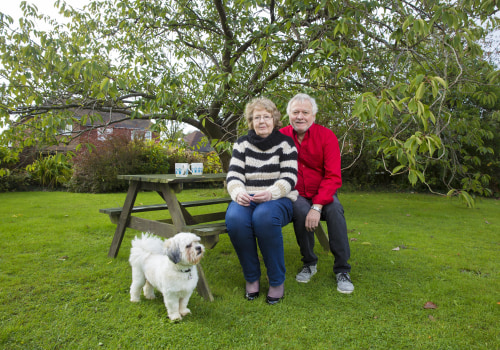The lowest capital release interest rate is currently 3.67% (AER) fixed for life. The highest interest rate on the market is 7.10% (AER). Bankrate's ranking of the best HELOCs can help you start your search by evaluating interest rates, terms and charges from a variety of lenders. The following resources can also help you learn more about the process of taking advantage of your home's equity and deciding if a HELOC is right for you.
Home equity line of credit rates are determined by your financial situation and your credit rating. If you have good credit, your HELOC rate could be between 3 and 5 percent. If you have below-average credit, you're likely to be within the 9-10 percent range. On the other hand, a home equity loan offers more predictability in terms of monthly payments, since you will receive a large sum of money upfront and pay it back in monthly installments with a fixed interest rate.
Home equity loans are often better for people who need a lump sum right away and want a predictable monthly payment. To select the top lenders offering home equity lines of credit (HELOC), Bankrate considered factors that help consumers decide whether a lender is right for them, such as minimum APR and maximum combined loan-to-value ratio. We are looking for lenders with low rates and a variety of loan amounts for borrowers with different budgets and credit profiles. We are also looking for amenities such as online applications and fast funding.
Mortgages with longer terms tend to have higher interest rates. That is also the case with home equity loans. In the NerdWallet Home Equity Survey, the average rate for loans with 15-year terms is usually higher than for loans with 10-year terms, which tend to have higher rates than loans with five-year terms. However, this is not an iron rule.
Sometimes, some lenders charge lower rates for longer term loans. That's why it's worth looking for a home equity loan. Interest rates on home equity loans tend to be higher than interest rates on primary mortgages because they carry more risk to the lender. A home equity line of credit, or HELOC, is a variable-rate line of credit, similar to a credit card.
You can take out a loan against your principal, up to a limit. When you return all or part of it, you can borrow again, up to the credit limit. You pay interest only on the amount you borrow. The initial interest rates of HELOCs are generally lower than those for home equity loans.
But HELOCs have variable rates, which can go up or down periodically, while home equity loans have fixed rates. See the advantages and disadvantages of home equity loans compared to HELOCs. The best interest rate in Equity Release is currently 3.53%. Capital release interest rates range from 3.50% to 6%.
Rates can be fixed or variable with a maximum limit. The cost of lifetime mortgages has been reduced as interest rates are now lower than before. However, as interest charged increases, lifetime mortgages continue to cost significantly higher than standard mortgages. With current equity release interest rates, unlocking equity tied to your home is still cheaper than it was a few years ago, reinforcing the argument that freeing up equity may be a competitive alternative to conventional mortgages for homeowners aged 55 and over.
Even so, if you qualify for a home equity loan right now, it's a good time to get one, since interest rates are low. The difference between fixed and variable interest rates is that fixed rates are set when capital is unlocked and stays the same at all times; variable rates will fluctuate according to financial market standards. However, as mortgage rates are expected to rise this year, home equity lending could become an increasingly attractive option for homeowners to leverage equity. The comparison chart below shows some of the best equity release interest rates with Age Partnership, all of which come with a non-negative capital guarantee for your protection.
So instead of paying up to 7% for a capital release mortgage, you could now benefit from interest rates as low as 3.50%. While fixed rates are much more common with capital release, variable interest rates of capital release will come with a cap. The drop-down table above (select Average Home Equity Rate) provides the average interest rates quoted by five national and regional home equity lenders, according to the NerdWallet Rate Survey, which is conducted every two weeks. When looking for a home equity loan, look for a competitive interest rate, payment terms that meet your needs, and minimum fees.
To qualify for the lowest rate on your BMO Harris home equity loan, you'll need to set up autopay from an eligible BMO Harris checking account. Interest rates on home equity loans change with financial markets, but are generally lower than other forms of lending, such as unsecured personal loans or credit cards. The best home equity loan lenders offer a variety of repayment terms, low interest rates and low fees. Some lenders will offer a discount on the interest rate on a home equity loan if you have another account with the bank.
Rates are usually higher than home equity products, but you won't have to worry about the lender foreclosing your home if you don't meet payments. If you are married and want to unlock a joint plan, the age of the youngest spouse will be taken into account in determining the interest rates of capital release. . .





